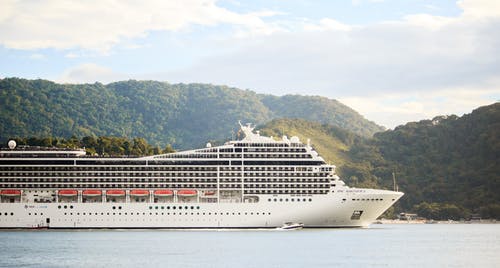Stepping off the boat into new countries comes with new challenges, and when you’ve never been on a cruise it’s not surprising you don’t know what to expect. Or pack! If you’re planning to set sail across the Baltic Sea, or float through the Norwegian Fjords with Ambassador Cruise Line, here are a few things you do not want to forget.
Travel Insurance for Cruising
Purchasing a cruise ticket can feel like booking a hotel or an all-inclusive experience where there will be attendants to help you each step of the way. But before you leave the dock you’re in charge of organizing and that includes your health and safety. Travel insurance that covers cruises is essential. Make sure you check the terms of your insurance before you commit, coverage for cruises is often an additional fee to travel insurance.
Cruise ships average around 1000ft (~300 meters) and when out on the open waters walking the decks the last thing you want to be worrying about is the cost and stress of replacing a phone that was dropped in the pool on the first day. Keep the phone number for your insurance and family written down, just in case!
Motion Sickness, Mosquito and Medicines
Of course, we hope the swaying of the sea will rock you soundly to sleep but, more likely, the motion of the ocean will result in nausea and you might find yourself bound below deck if you don’t travel with motion sickness tablets. And if the rolling waves didn’t make you unwell but your stomach is still influx, try taking activated charcoal.
During a romantic night of drinks on the deck, you do not want to be driven off by itching mosquito bites or the strong chemical stench of deet-filled mosquito repellent. Despite it being the most effective repellent, covering your flowery perfume that draws them in, people are often looking for a more stylish option like deet-free mosquito repellent bracelets.
If you need to take medication, make sure to make copies of any prescriptions or doctor’s notes and take them with you. Records like this will negate the risk of going without medication due to international regulations.
Virtual Private Network (VPN)
At every stop along the way, you’ll be looking to connect with the world. Transferring extra money for your trip via the local cafe’s WIFI could have you cut off from your funds until your home bank re-opens. Even signing into your Google account can be a nightmare!
While signing up for a free VPN might be tempting, when you are unable to watch your favorite Netflix program because they ‘detected you’re using a VPN’ you’ll wish you went with a paid one like Norde or Express. Prices average $12 per month.
To avoid banking problems, it’s also worth calling your bank before you set off letting them know the stops you’re making on your trip. Make sure your spending out on the seas doesn’t get caught in their fraud filters.





